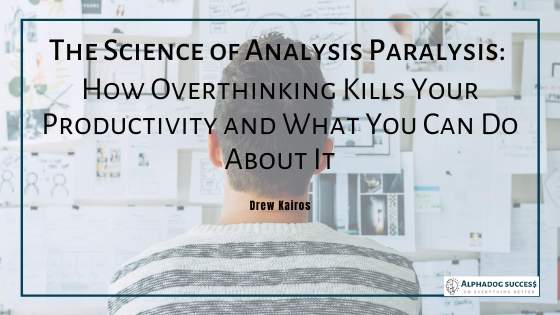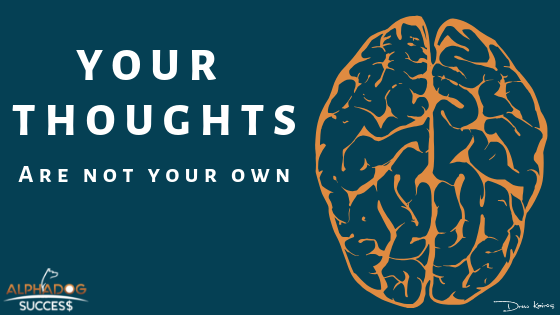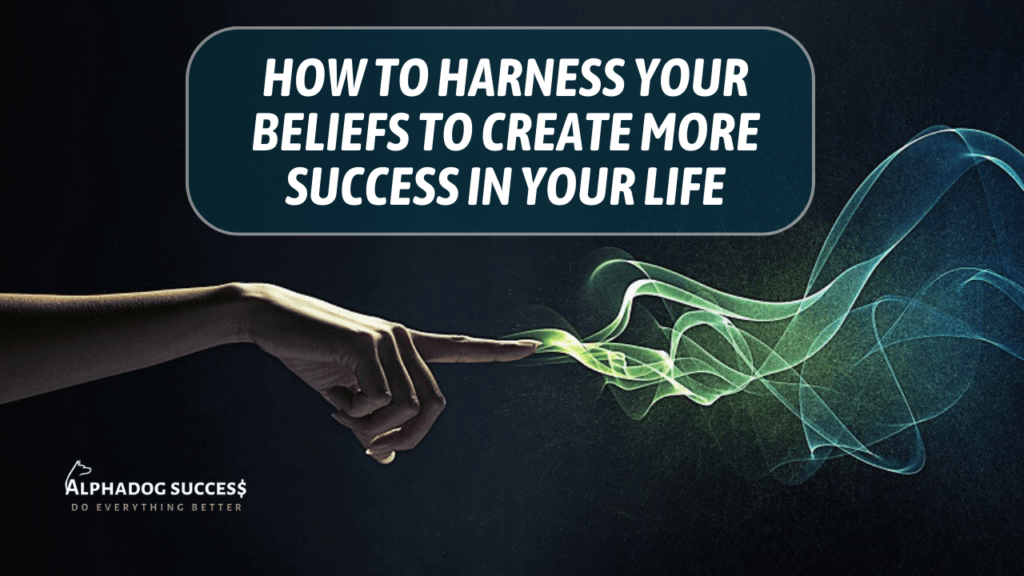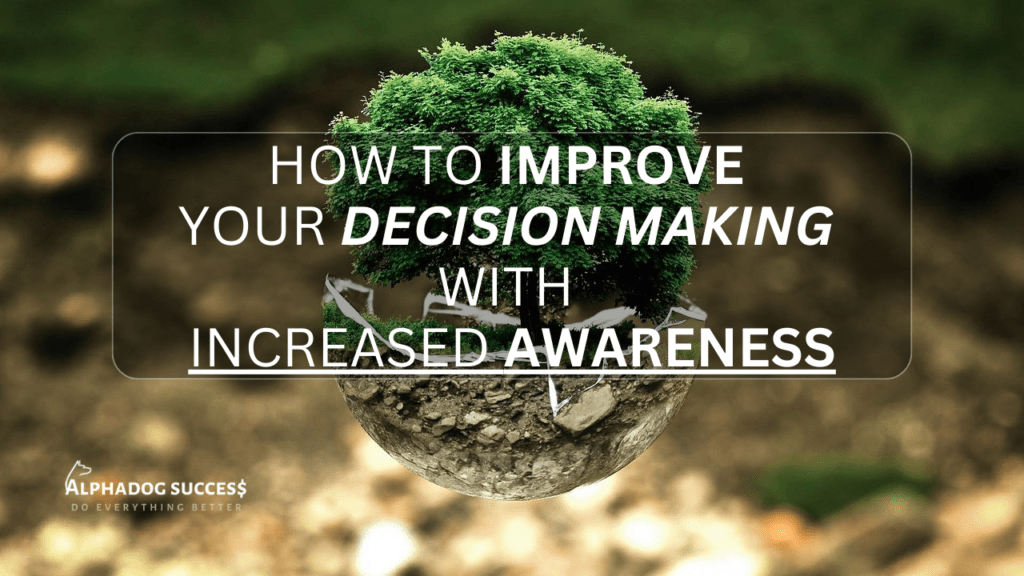The Science of Analysis Paralysis: How To Overcome Over-Thinking
Let me start by saying that I’m a millennial. I can barely remember before the internet made all collective knowledge accessible for any question that crossed my mind. Unfortunately, despite having more access to high-quality information to help us make life’s decisions, it hasn’t made decision-making any easier. We can now research the pros and cons of each and every option available to us. A simple search can often open a time-sucking black hole of link clicking, article reading, video watching. That search may end hours later…with no new answers. Psychologist Barry Schwartz coined the phrase “Paradox of Choice”. He says, while increased choice allows us to achieve objectively better results, it also leads to greater anxiety, indecision, and dissatisfaction. Instead of making better choices, our unlimited access to information often leads to fear of making the wrong decision. This can lead to us spinning our wheels in analysis paralysis, all the while getting nowhere on our important projects. Naturally, I was curious about what goes on in our brains when we experience indecision; and what we can do about it. How overthinking decisions is holding you back Delaying action while over-analyzing information doesn’t help anyone get things done. In fact, a 2010 survey showed that employees spend more than half their workdays receiving and managing information. This takes away from time spent actually doing their jobs!(Does this sound like you?) Unfortunately, that’s just the start of the bad news. Studies in psychology and neuroscience reveal that analysis paralysis impact our productivity and well-being more than just the lost time. Here are four not-so-obvious ways that overthinking your decisions is holding you back: 1. Analysis paralysis lowers your performance on mentally-demanding tasks In short, our working memory is like computer RAM, allowing us to focus on the information we need to get things done. Unfortunately, our working memory is in limited supply. You can think of it like our brain’s computer memory. Once it’s used up, there’s not much we can do. Studies have shown that high-pressure, anxiety-producing situations lead to lower performance on cognitively demanding tasks – the tasks that rely most heavily on working memory. Furthermore, the more participants want to perform well on a task, the more their performance suffers. Researchers believe both anxiety and pressure generate distractions that take up space in our working memory. When you overanalyze a situation, the over-analysis, anxiety, and self-doubt decrease the amount of working memory you have available to complete challenging tasks. This causes your productivity to plummet even further. 2. Analysis paralysis kills your creativity A recent Stanford study suggests that over-thinking not only impedes our ability to perform cognitive tasks, but keeps us from reaching our creative potential as well. “Participants in the study were placed into a functional magnetic resonance imaging machine with a nonmagnetic tablet and asked to draw a series of pictures based on action words (for example, vote, exhaust, salute) with 30 seconds for each word. (They also drew a zigzag line to establish baseline brain function for the task of drawing.) The participants later ranked each word picture based on its difficulty to draw. The tablet transmitted the drawings to researchers at the school who scored them on a 5-point scale of creativity, and researchers at the School of Medicine analyzed the fMRI scans for brain activity patterns. The results were surprising: the prefrontal cortex, traditionally associated with thinking, was most active for the drawings the participants ranked as most difficult; the cerebellum [the part of the brain traditionally associated with movement] was most active for the drawings the participants scored highest on for creativity. Essentially, the less the participants thought about what they were drawing, the more creative their drawings were.” These findings suggest that overthinking a problem makes it harder to do your best creative work. 3. Overthinking eats up your willpower A fascinating (and rather alarming) study published by the National Academy of Science looked at the decisions of parole board judges over a 10-month period. They found that judges were significantly more likely to grant parole earlier in the morning and immediately after a food break. Cases that came before judges at the end of long sessions were much more likely to be denied. This phenomenon held true over 1,100 cases regardless of the severity of the crime. As a lawyer – this was important! The judges were experiencing what psychologists call decision fatigue. Each decision that we make, from whether or not to hit snooze to what outfit we’ll wear to what we’ll eat for lunch, draws on the same limited supply of willpower. You can think of willpower as a muscle (I like to think of it as MANA from a video game).The more you use it, the more it wears out, leaving you feeling overwhelmed and exhausted. That’s why so many dieters start out strong at the beginning of the day with a healthy breakfast and lunch, only to succumb to the temptations of junk food from the office break room in the afternoon. Actions that we take automatically, like brushing our teeth, take little willpower. However, when we agonize over a decision, we deplete our limited supply of willpower much more quickly, causing us to feel exhausted and overwhelmed. Not only does this decision fatigue inhibit our ability to clearly assess the situation at hand, it also makes us more likely to choose unhealthy food, skip exercise, and put-off working on side projects in favor of watching TV. In short, analysis paralysis makes it much more difficult to make high-quality, long-term choices later on. 4. Analysis Paralysis makes you less happy Essentially you are either a Satisficer or a Maximizer. Gretchen Rubin of The Happiness Project says: “Satisficers make a decision once their criteria are met. When they find the hotel or the pasta sauce with the qualities they want, they’re satisfied.” In contrast, “Maximizers want to make the best possible decision; even if they see a bicycle that meets their requirements, they can’t make a decision until they’ve examined every option.” Research suggests
The Science of Analysis Paralysis: How To Overcome Over-Thinking Read More »




